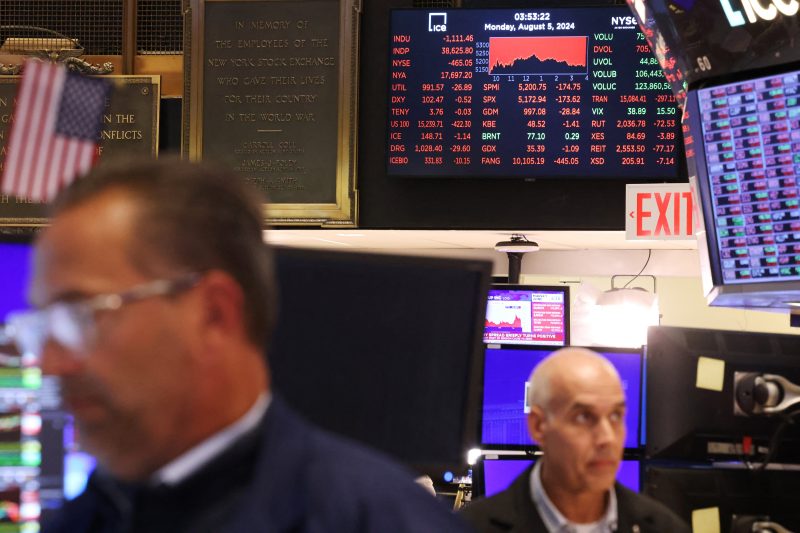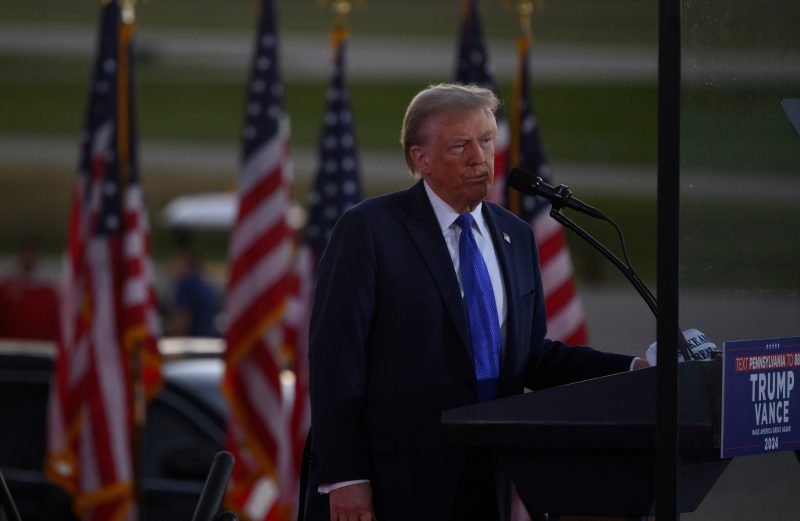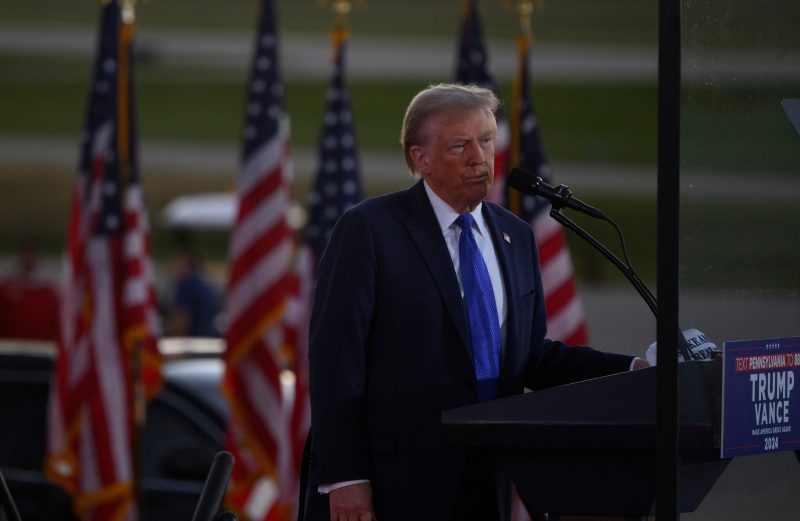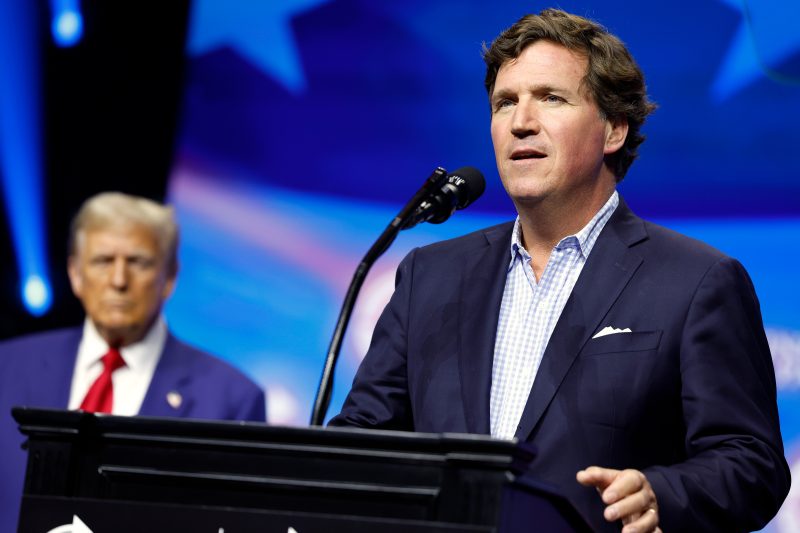
Weirdness in the markets and on the right
On Monday morning, as American stock markets were following Asian markets downward, Sen. Tom Cotton (R-Ark.) challenged Vice President Harris to “immediately — without a script — explain her economic policies.” If she couldn’t do that, he said, she was unfit for the presidency.
Stephen Miller, one of former president Donald Trump’s longest-standing advisers, escalated the rhetoric — as he does. The vice president, he said, “must hold a news conference or resign.” The plunge in the S&P 500 and Dow Jones Industrial Average, it seemed, was the sort of thing that made or broke political careers. If Harris couldn’t rise to the occasion? Well, she would have to step down from her position, according to objective observer Stephen Miller.
Over on Truth Social, Trump posted a video titled, “KAMALA KRASH.”
The S&P closed down about 3 percent, and the Dow closed down 2.8 percent. There were numerous days during the Trump administration when the markets showed similar drops — even before the tumult accompanying the coronavirus pandemic.
In February 2018, for example, there were larger drops in each index more than once in the span of a week. Trump did not hold a news conference in the immediate wake of the first drop, much less hours into the decline. Representatives of his administration were asked about the drop, mostly because Trump himself had been so committed to using the market as a thermometer for his performance as president.
Ultimately, Trump decided to report publicly that the drop was a function of there being “so much good (great) news about the economy.” When stocks dropped again later in the year, it was because (in his presentation) investors were waiting to see what happened in the midterms. When they fell in February 2020, obviously as a function of concern about the emerging pandemic, Trump suggested that it was also a response to the performance of Democratic presidential candidates in a debate.
The defining characteristic of Trump’s politics, of course, is the lack of subtlety. This is a guy who tried to take credit for the lack of plane crashes during the first year of his presidency. Who just recently tried to take credit for Los Angeles getting the 2028 Olympics, a process that was nearly complete before he took office. If it’s good, he claims it. If it’s bad, he attributes it to someone else. It’s no more complicated than that.
But let’s step back to Miller and Cotton. The Arkansas senator, no doubt recognizing that Harris was in the middle of determining her running mate, offered a standard bit of political rhetoric trying to put Harris on the defense in response to breaking news. Miller took it further, earning more reposts than Cotton for his trouble.
For some time on Monday, “#KamalaCrash” was trending on X. That, of course, is the site formerly known as Twitter and the one on which Cotton and Miller posted their comments about Harris. The name change accompanied Elon Musk’s purchase of the site and his transformation of it into a place of overt hospitality to fringe-right rhetoric. There has long been a right-wing echo chamber, one far more robust and well-policed than any on the left. Musk’s revamp of Twitter expanded that bubble dramatically, appending to it a large platform that had come to be identified with breaking news.
Minnesota Gov. Tim Walz (D), tapped to serve as Harris’s running mate on Tuesday morning, triggered a new line of attack recently when he summarized Trump and his supporters as “weird.” It’s a succinct way of noting the ways in which Republican rhetoric often spills over into surreality, a tendency driven by Trump’s style but accentuated by a conversational universe that rewards extremism. Cotton can score a point by arguing that Harris should detail her economic policies. Miller can score more points by demanding she resign — a demand that his team would have scoffed at had it been made of Trump (much less Mike Pence!) in 2018.
This is an underrecognized element of the political conversation. There are few checks on rhetorical extremism on the right, particularly on social media. Instead, there’s an arms race. It’s easy, then, to find examples of people close to Trump seizing upon arguments that can justifiably be called “weird.” It’s less a political movement than an out-over-your-skis competition.
As of this writing, both the Dow and the S&P are up slightly. Had Trump announced his vice-presidential pick on Tuesday, he’d likely cite that as the reason for the rebound. Instead, he and his allies (like Miller) have moved on. There are attacks on Walz to be made instead, ones that themselves are working their way through the right’s evolutionary process to maximize their base’s outrage. Trump’s campaign, for example, welcomed the Walz pick by claiming in a fundraising email that the Minnesota governor will “unleash HELL ON EARTH.”
That is, unquestionably, a weird claim.



